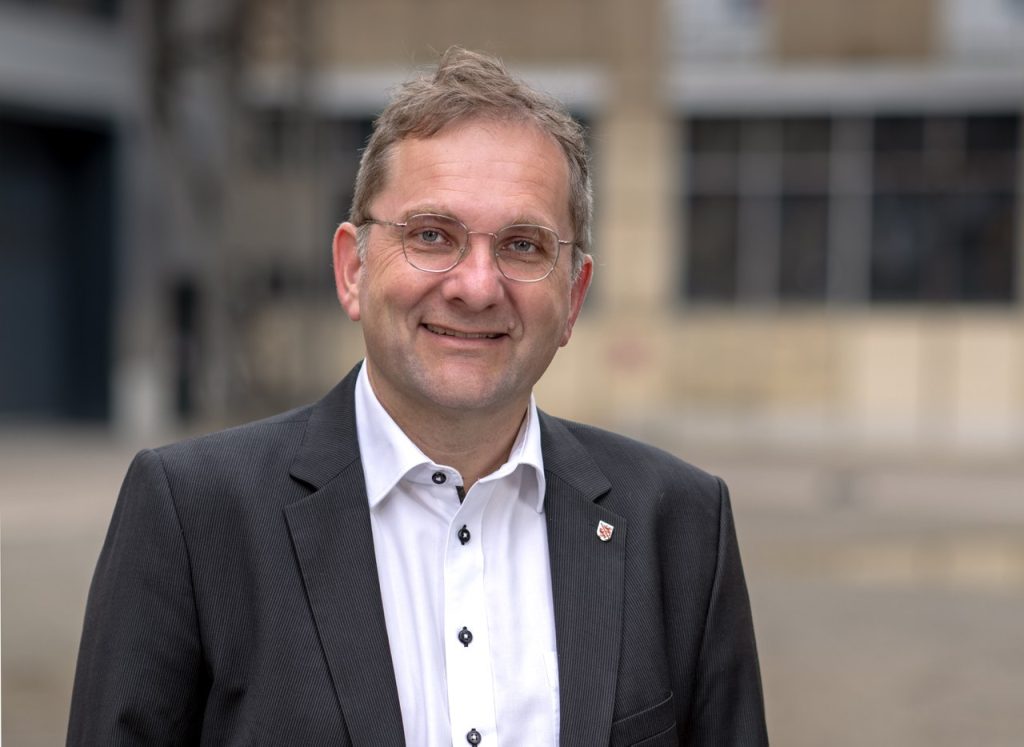“We no longer need a (gas) pipeline network in residential areas”
One Swiss city is getting off gas because it is the easy thing to do
Getting off gas begins with ambition. It was the citizens of Winterthur, Switzerland, not far from Zurich, who voted in favour of the city reaching climate neutrality by 2040.
“Decarbonisation in the section of heat is comparatively simple from a technical point of view. Replacement solutions such as heat pumps are technically fully developed. The challenge of decarbonising air traffic, for example, is much greater,” explains Stefan Fritschi, Head of Technical Operations from the City of Winterthur, Switzerland. “Around 1/3 of the CO2 emissions come from the section of heat generation. Achieving a net zero target is not possible if so many fossil fuels continue to be used.”

“Biogas, synthetic methane and also hydrogen will be part of the energy future. But we will no longer heat houses with it, these energy sources are too precious for that.
-Stefan Fritschi, Head of Technical Operations from the City of Winterthur, Switzerland.
If you want to get out of the hole, you have to stop digging. That means halting investments in and connections to the gas grid while planning for the future of heating.
“We have been working for years to make this transformation possible at the lowest possible cost. For example, we have not built any new connections to the gas grid for several years. Also, investments in the gas grid are only made where it is mandatory for safety reasons. We used to invest over 3 million in the gas grid every year. Today, not even one. On the other hand, we will invest a lot of money in new district heating networks in the next few years.”
Wouldn’t it be easier to switch everyone to biogas or hydrogen?
“Biogas, synthetic methane and also hydrogen will be part of the energy future. But we will no longer heat houses with it, these energy sources are too precious for that. The industry will certainly need large quantities of hydrogen. For these applications, however, we no longer need a pipeline network in residential areas.”
Will the switch from methane boilers to district heating happen overnight? Or will it happen in stages?
“We plan to decommission around half of the gas grid by 2033. In a further step, another 30 % of the current length will be decommissioned by 2040 – in other words, by 2040 our gas grid will only be around 20 % of its current length.
Only renewable gases will then be transported through these pipes. We assume that this will be around 150 gigawatt hours. The renewable gases are to be used where they provide the greatest benefit, for example for industrial processes or to cover the peak demand of heating grids.”
How does that compare to the situation today?
“Start quickly. The more time you have, the easier and cheaper it will be. If you only have 5 years to decommission the gas network, you need to replace ¾ of the heating systems ahead of time, not just half of it.”
-Stefan Fritschi
“We have a gas grid of around 220 km. Currently, natural gas is the most important energy source in the heating supply of Winterthur. With annual sales of around 450 gigawatt hours, it accounts for a good 40 % of the heating market.”
Are homeowners worried about the switch or the sunk costs of their boiler?
“We announce the decommissioning of the gas grid 10 years in advance. This gives the vast majority of our customers enough time to implement a new solution. We expect a heating system to have an average life expectancy of 20 years. About half of the heating systems will be replaced within these 10 years anyway. For the heaters that are not yet 20 years old when the gas pipes are shut off, we pay a residual value compensation.”
Final words of advice for other cities?
“Start quickly. The more time you have, the easier and cheaper it will be. If you only have 5 years to decommission the gas network, you need to replace ¾ of the heating systems ahead of time, not just half of it.”
